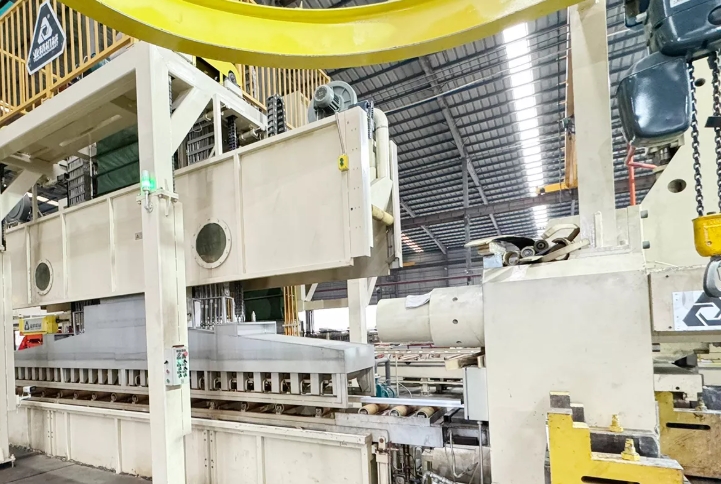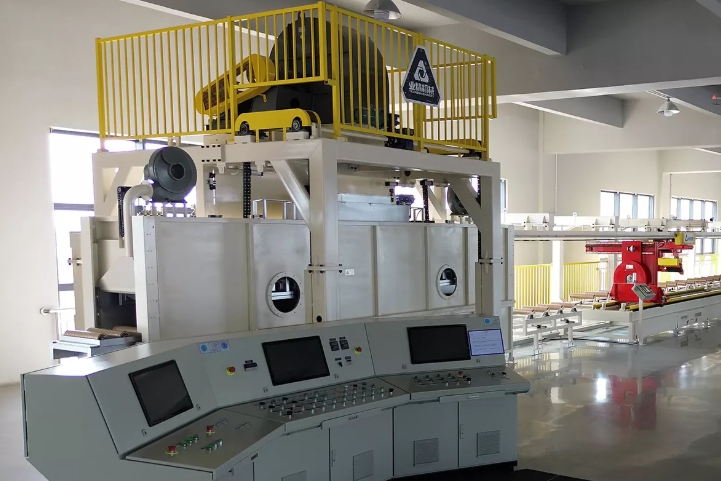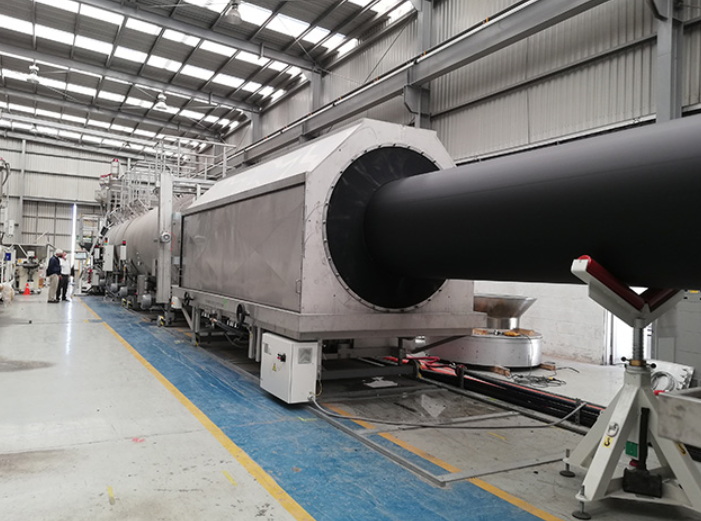Content Menu
● What is Quenching?
● The Role of Quenching Systems in Modern Industry
● Key Criteria for Selecting a Quenching System
>> Type of Quenching Medium
>> Cooling Rate and Uniformity
>> Automation and Process Control
>> Tank Size and Agitation Systems
>> Safety and Environmental Compliance
>> After-Sales Support and Spare Parts Availability
>> Customization for Specific Alloys or Product Forms
● Top Quenching System Manufacturers and Suppliers in Europe
>> DuBois Chemicals / CIMCOOL Europe
>> Avion Europe GmbH & Co. KG
>> Sheffield Forgemasters
>> Nabertherm
>> GEA Group
>> Interpower Europe Ltd
>> GF-ELTI S.r.l.
>> Tenova LOI Thermprocess
>> TAVENGINEERING
● The Importance of Innovation and Sustainability
● The Global Impact of European Quenching System Suppliers
● Conclusion
● Frequently Asked Questions (FAQ)
>> Q1: What are the main types of quenching media used in European quenching systems?
>> Q2: How do European manufacturers ensure environmental and safety compliance in quenching systems?
>> Q3: Can quenching systems be customized for specific production needs?
>> Q4: What industries benefit most from advanced quenching systems?
>> Q5: How long does it take to install a new quenching system in Europe?
In today's highly competitive manufacturing landscape, achieving optimal material properties is crucial for industries ranging from automotive to aerospace and construction. Among the many heat treatment processes, quenching stands out as a fundamental method for enhancing the mechanical properties of metals and alloys. The demand for efficient, reliable, and environmentally conscious quenching systems has led to the emergence of advanced solutions from leading European manufacturers. This article offers a comprehensive exploration of the top quenching system manufacturers and suppliers in Europe, their technologies, and the value they provide to OEMs, brand owners, wholesalers, and manufacturers worldwide.

What is Quenching?
Quenching is a rapid cooling process that follows the heating of metals or alloys to a specific temperature. The goal is to alter the microstructure of the material, resulting in increased hardness, strength, and improved wear resistance. The process typically involves immersing the heated workpiece in a quenching medium such as water, oil, polymer solutions, or gases. The choice of medium and the cooling rate are critical, as they directly influence the final properties of the treated material.
The Role of Quenching Systems in Modern Industry
Modern quenching systems are engineered for precision, consistency, and safety. Their design and operation are pivotal in ensuring that the desired mechanical properties are achieved without introducing defects such as distortion or cracking. These systems are integral to a wide range of industries, including:
- Automotive: For producing high-strength gears, shafts, and other critical components.
- Aerospace: Ensuring the reliability and durability of structural and engine parts.
- Construction: Enhancing the performance of steel beams, rods, and fasteners.
- Heavy Machinery: Improving the toughness and longevity of large-scale machine parts.
By utilizing advanced quenching systems, manufacturers can ensure:
- Consistent product quality: Uniform cooling eliminates variations in hardness and microstructure.
- Reduced distortion and cracking: Controlled cooling rates minimize thermal stresses.
- Optimized energy and resource use: Efficient systems lower operational costs and environmental impact.
- Compliance with industry standards: Meeting strict specifications for safety-critical applications.
Key Criteria for Selecting a Quenching System
Choosing the right quenching system is a strategic decision that affects product quality, operational efficiency, and long-term profitability. When evaluating quenching system manufacturers and suppliers, consider the following criteria:
Type of Quenching Medium
The choice of quenching medium—oil, water, polymer, or gas—depends on the alloy, desired properties, and process requirements. Each medium offers distinct cooling rates and characteristics:
- Oil: Slower cooling, reduced risk of cracking, suitable for high-alloy steels.
- Water: Fast cooling, ideal for simple geometries and low-alloy steels.
- Polymer solutions: Adjustable cooling rates, environmentally friendly, and versatile.
- Gas (e.g., nitrogen, argon, helium): Used in vacuum or controlled atmosphere furnaces for delicate or high-value components.
Cooling Rate and Uniformity
Uniform cooling is essential to prevent warping and ensure consistent mechanical properties. Advanced agitation systems, temperature control, and process monitoring are crucial features of high-quality quenching systems.
Automation and Process Control
Modern quenching systems often include programmable logic controllers (PLCs), SCADA integration, and data logging. Automation enhances repeatability, reduces labor costs, and ensures traceability for quality assurance.
Tank Size and Agitation Systems
The size of the quench tank and the effectiveness of agitation determine the system's capacity and cooling uniformity. Larger tanks accommodate oversized components, while efficient agitation ensures even heat extraction.
Safety and Environmental Compliance
European regulations require quenching systems to minimize emissions, prevent spills, and ensure operator safety. Features such as temperature monitoring, emergency shutoffs, and environmentally friendly quenchants are standard among leading suppliers.
After-Sales Support and Spare Parts Availability
Reliable after-sales service, technical support, and readily available spare parts are vital for minimizing downtime and maintaining productivity.
Customization for Specific Alloys or Product Forms
Many manufacturers offer tailored systems to address unique production needs, including custom tank dimensions, specialized agitation, and integration with existing production lines.
Top Quenching System Manufacturers and Suppliers in Europe
DuBois Chemicals / CIMCOOL Europe
DuBois Chemicals, through its CIMCOOL Europe division, is a pioneer in the development of specialty quenching fluids and integrated systems. Their product range includes both oil-based and water-based quenchants, each engineered for maximum performance, corrosion protection, and compliance with the latest European environmental regulations.
CIMCOOL's solutions are widely used in both general engineering and high-specification industries such as aerospace and automotive. Their AAA-DA Quench Oil is renowned for its accelerated cooling properties, minimizing distortion while ensuring uniform hardness. For aluminum alloys, their Alumiquench product line meets the stringent standards required by aerospace manufacturers.
DuBois/CIMCOOL's commitment to process efficiency, sustainability, and technical support makes them a preferred partner for OEMs and production facilities across Europe.
Avion Europe GmbH & Co. KG
Headquartered in Germany, Avion Europe is a full-service provider for the heat treatment industry. The company supplies everything from spare parts to complete quenching systems, offering installation, integration, and long-term support. Avion Europe acts as a sales and service partner for several renowned furnace and quenching equipment manufacturers, ensuring seamless system integration for European clients.
Avion's expertise covers a broad spectrum of quenching technologies, including salt, oil, and polymer systems. Their ability to integrate quenching systems with SCADA and production management tools sets them apart, as does their focus on maintenance, revamping, and system upgrades.
Strategic partnerships with companies like Cieffe Thermal Systems and Sistem Makina enable Avion to deliver comprehensive solutions tailored to the needs of both large-scale and niche manufacturers.
Sheffield Forgemasters
Based in the United Kingdom, Sheffield Forgemasters is synonymous with large-scale heat treatment and quenching capabilities. Their facilities include massive oil and water quench tanks—some with capacities up to 79,000 gallons—capable of handling oversized and heavy components. High-agitation systems ensure uniform cooling, while cryogenic cooling tanks enable the treatment of advanced materials requiring extremely low temperatures.
Sheffield Forgemasters serves both internal and external clients, offering contract heat treatment services for industries such as power generation, defense, and heavy engineering. Their reputation for reliability and technical excellence makes them a key player in the European quenching system market.
Nabertherm
Nabertherm, a German manufacturer, is renowned for its advanced heat treatment and quenching equipment. Their automatic quench and temper systems are designed for both water and polymer quenching, featuring stainless steel tanks, integrated circulation and heat exchanger systems, and precise temperature and level monitoring.
Nabertherm's systems are highly customizable, allowing for the integration of optional heating and insulation for precise medium control. Their focus on automation and process reliability ensures consistent results, making them a trusted supplier for demanding industrial applications.
GEA Group
With a strong European presence, GEA Group specializes in hot gas quench systems for rapid cooling in challenging industrial environments. Their systems are engineered to handle corrosive gases and high temperatures—up to 1,300°C—making them ideal for emission control and process gas cooling applications.
GEA's quench systems are constructed from plastic and glass fiber reinforced materials for durability and can handle large gas flows, up to 300,000 m³/h. Their commitment to safety, environmental compliance, and process optimization has earned them a reputation as a leading supplier to the chemical, petrochemical, and power generation sectors.
Interpower Europe Ltd
Interpower Europe Ltd is a prominent manufacturer of induction heating and quenching equipment. Their solutions cater to a variety of heat treatment processes, including bar and tube heat treatment lines, customizable quench tanks, and induction coils.
Interpower's expertise in induction heating allows for precise control of the quenching process, high throughput, and integration with automation systems. Their focus on innovation and customer support makes them a preferred partner for manufacturers seeking advanced, energy-efficient quenching solutions.
GF-ELTI S.r.l.
Italian company GF-ELTI specializes in the design, production, and installation of complete quenching systems as part of integrated heat treatment lines. Their systems are known for advanced process control, data historicization, and seamless integration with full production lines.
GF-ELTI's ability to customize quenching systems for diverse product geometries and their emphasis on automation and process reliability make them a valuable supplier for industries requiring consistent quality and traceability.
Tenova LOI Thermprocess
Tenova LOI Thermprocess is a global leader in heavy and thin plate quenching technologies. Their product lines include hQuench® for heavy plates, tQuench® for thin plates, sQuench® for steel strip, and iQuench® for various quenching modes.
Tenova's systems are characterized by their flexibility, automation, and advanced mathematical process modeling. They serve both mass producers and niche manufacturers, offering solutions that maximize productivity, energy efficiency, and product quality.
TAVENGINEERING
TAVENGINEERING specializes in water quenching furnaces with a focus on automation, user-friendly controls, and compliance with AMS certification standards. Their green approach utilizes inert gases for sustainability, and their systems are designed for rapid delivery, with a maximum lead time of six months.
TAVENGINEERING's commitment to innovation, quality, and environmental responsibility positions them as a leading supplier of quenching systems for high-value, safety-critical components.

The Importance of Innovation and Sustainability
European quenching system manufacturers and suppliers are at the forefront of innovation, continually developing new technologies to address evolving industry needs. Key trends include:
- Digitalization and Industry 4.0: Integration of IoT sensors, real-time monitoring, and predictive maintenance for enhanced process control.
- Energy Efficiency: Adoption of heat recovery systems, variable-speed drives, and optimized agitation to reduce energy consumption.
- Environmental Responsibility: Use of biodegradable quenchants, closed-loop water systems, and emission control technologies to minimize environmental impact.
- Customization and Flexibility: Modular system designs that can be adapted to changing production requirements and new materials.
These advancements not only improve the performance and reliability of quenching systems but also help manufacturers meet the increasing demands for sustainability and regulatory compliance.
The Global Impact of European Quenching System Suppliers
European quenching system manufacturers and suppliers have a significant global influence, exporting advanced systems and expertise to markets worldwide. Their commitment to quality, innovation, and customer support has made them trusted partners for OEMs, brand owners, and manufacturers in Asia, North America, and beyond.
For companies seeking to enhance their heat treatment capabilities, partnering with a reputable European supplier ensures access to cutting-edge technology, comprehensive support, and solutions tailored to specific production needs. Whether for high-volume automotive parts, aerospace components, or custom-engineered products, European quenching systems set the standard for performance and reliability.
Conclusion
Europe is home to some of the world's most advanced and reliable quenching system manufacturers and suppliers. Companies such as DuBois Chemicals/CIMCOOL, Avion Europe, Sheffield Forgemasters, Nabertherm, GEA Group, Interpower Europe, GF-ELTI, Tenova LOI Thermprocess, and TAVENGINEERING have established themselves as leaders in the field by offering innovative, efficient, and environmentally responsible solutions.
Their expertise covers a broad spectrum of applications, from heavy industry to precision manufacturing, and their commitment to quality and customer satisfaction is unmatched. By leveraging the strengths of these top suppliers, manufacturers can achieve superior product quality, operational efficiency, and compliance with the most demanding industry standards.
If you are an OEM, brand owner, wholesaler, or manufacturer seeking to upgrade your heat treatment capabilities, exploring the offerings of these leading European quenching system suppliers is a strategic step toward long-term success.

Frequently Asked Questions (FAQ)
Q1: What are the main types of quenching media used in European quenching systems?
A1: The most common quenching media are oil, water, polymer solutions, and gases such as nitrogen, argon, and helium. The choice depends on the material type, desired properties, and specific process requirements.
Q2: How do European manufacturers ensure environmental and safety compliance in quenching systems?
A2: Leading manufacturers design their systems to meet strict European regulations, focusing on minimizing emissions, using environmentally friendly quenchants, and incorporating advanced safety features such as temperature monitoring, automated controls, and spill prevention measures.
Q3: Can quenching systems be customized for specific production needs?
A3: Yes, most European suppliers offer customized solutions, including tailored tank sizes, specialized agitation systems, automation levels, and seamless integration with existing production lines to meet unique customer requirements.
Q4: What industries benefit most from advanced quenching systems?
A4: Industries such as automotive, aerospace, heavy machinery, construction, and metalworking rely heavily on advanced quenching systems to produce high-performance, safety-critical components with consistent quality.
Q5: How long does it take to install a new quenching system in Europe?
A5: Delivery and installation times vary depending on the supplier and system complexity. For example, TAVENGINEERING offers water quenching furnaces with a maximum delivery time of six months. Other suppliers may have different lead times based on customization and project scope.













